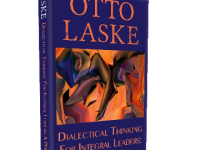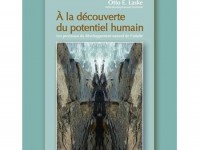In this paper, the authors (Otto Laske, Alessandro Rossi) lay out a practical approach to integral counseling (part A) and consulting to teams (part B), based on the Constructive Developmental Framework (CDF). The main topic is how to combine interventions for strengthening developmental level and cognitive fluidity, seen as intrinsically related as well as mingled in practice. CDF tools are described as prompts that trigger evidence about the frame of reference based on which clients and teams think, feel, and make decisions. Theoretically, the proposed framework includes and transcends both Wilber’s quadrants and Bhaskar’s moments of dialectic, showing a path toward integral constellations work for which teachable and learnable pragmatic tools are presently hard to find. A Developmental Framework for Deep Listening and Thinking Read More...
Tag: Socio-emotional Dimension
Contributions to Evidence Based Developmental Coaching
This article describes a constructivist approach to coaching based on the Constructive Developmental Framework (CDF). Such coaching is evidence based, i.e., based on empirical assessments of coachees prior to actual coaching. Coaching plans are based on empirical findings about coachees' present frame of reference (the way they see the world), meant to guide them toward a more lucid understanding of themselves and their work, and toward more complex thinking. The article appeared in the International Review of Coaching Psychology, London, UK, in 2007, and is here reprinted because it helps behavioral coaches understand the limitations of their professional work. Contributions of Evidence Based Coaching 2007 Read More...
Executive Development as Adult Development
This article, chapter 9 of Demick et al’s Handbook of Adult Development (Springer 2002), tries to escape the tunnel vision of organizational theorists and consultants alike who, while glorifying leaders, cannot penetrate to the adult-developmental origins of leadership and get lost in psychological or spiritual speculations, or else lists of competences. Instead, the article adopts the distinction between "ontic" and "agentic" development, that is, the development that happens over human resources' life span development, on one hand, and the organizational mechanisms put in place to "develop" them, on the other. The article conceptualizes executive development as a lawful developmental modification of an individual's professional agenda and universe of discourse in the cognitive and social-emotional sense or, to speak with E. Jaques, his/her Size of Person. Refining Argyris, three levels of professional agenda are distinguished. M. W. McCall Jr.'s (1998) and D. T. Hall's writings (1996) are focused on in order to clarify contemporary theorists' views, referring to McCall's "five dilemmas" of human development in organizations. The article focuses on the dialectic of managerial strengths and weaknesses, the organizational shift to the "Proteian" (internal) career, and introduces Kegan's and Basseches' work alongside with empirical findings of the author. Laske, Executive Development... Read More...
Foundations of Scholarly Consulting: The Developmental Structure/Process Tool
This article of 2000 deepens Argyris’ notion of theory-in-use by recourse to empirical findings of the developmental sciences. It defines "consulting" based on this deeper notion. The article teaches a lesson still not learned in consulting: that theory-in-use has to do with levels of mental growth, both cognitively and social-emotionally, cutting through all "competence models". Consulting is redefined as the interactive design of interventions that take the level of mental growth of organization members and of their culture into account, equally in start-ups. Theory-in-use itself [what people actually do in organizations] is seen as comprising both a structural [social-emotional] aspect, referred to as individuals’ level of evolving self, and a procedural [cognitive] aspect, represented by individuals’ level of complexity handling. Their integration and unity demystifies "consciousness" as well as "leadership". In the process, the Developmental Structure/Process Tool (DSPT) – since 2005 referred to as CDF, Constructive Developmental Framework -- is introduced as an instrument of evidence-based consulting and coaching. CPJ #2, 2000. Read More...
An Integrated Model of Developmental Coaching
This article, originally published in 1999 but still very timely today, introduces a way of deepening cognitive-behavioral, psycho-dynamic, and other behavioral approaches to coaching and HR resources management. It proposes an epistemological model that focuses on adults' frame of reference (world view), the true determinant of human behavior, which has been practiced and taught internationally at the Interdevelopmental Institute (IDM) since 2000. The approach focuses on adults speech behavior as a dimension revealing their developmental profile both social-emotionally (with regard to meaning making) and cognitively (with regard to sense making or *thinking*). The paradigm and the model are developmental in a twofold sense, that of “ontic” development occurring in human organisms as the mature over their lifetime (“nature”), and of “agentic” development brought about by humans (“nurture”). An introduction to the model is presented, followed by the topology of the mental space of coaching, a summary, and suggested topics for future research. Source: Consulting Psychology Journal 51.3, pp. 139-159 CPJ #1, 1999 Read More...
Mentoring a Behavioral Coach to Think Developmentally
In this dialog between two coaches, one of them behavioral, the other developmental, I convey the mindset it takes to think about coaching clients in an adult-developmental manner. My goal is to demonstrate the differences in thinking and listening, not just "methodology", that separate the two approaches to coaching. From my experience, while behavioral coaching has its place at lower levels of organizational levels of responsibility, it is increasingly ineffective the higher one climbs up the organizational ladder. This does not preclude, however, that the two forms of coaching could not be fruitfully combined once the coach is expert in handling developmental tools. Keywords: Constructive Developmental Framework, dialectical thinking, handling complexity, developmental listening, social-emotional coaching, cognitive coaching. 2007_Laske_Otto_Mentoring_a_Beh._Coach(1) Read More...


